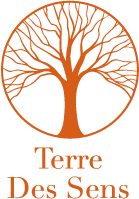
According to Ayurvedic medicine, understanding who we are and our own "Prakriti" constitution is the first step towards well-being. Ayurveda considers each individual to be unique; we are different thanks to the balance of three energies or Tridosha, which are called Vata (wind), Pitta (fire) and Kapha (earth).
The aim of an Ayurvedic check-up is first to determine your genotype, then the state of imbalance, in order to find the causes and suggest actions that will improve your general state to regain balance and well-being: dietary advice, massage, breathing exercises, health advice...
An Ayurvedic check-up, also known as a "Prakriti Pariksha" in Sanskrit, is an in-depth assessment carried out by an Ayurvedic practitioner to determine a person's individual constitution and any imbalances.
Evaluation of the constitution (Prakriti) : The practitioner questions the person about various aspects of their physiology, temperament, physical appearance, eating habits, lifestyle, preferences and so on. The aim is to determine the person's primary constitution in terms of the doshas (Vata, Pitta, Kapha), which are the basic principles of Ayurveda.
Identifying imbalances (Vikriti) The practitioner assesses the person's current imbalances, if any. This can be done through analysis of symptoms, habits, diet, emotions, sleep, etc. The aim is to understand where the doshas are in excess or deficiency in relation to the ideal state of the constitution (Prakriti).
Physical examination (Darshan and Sparshan): The practitioner visually observes various physical aspects of the person, such as tongue, skin, nails, etc., and may also perform a palpatory physical examination to assess the doshas.
Interrogation (Prashna): This involves asking the person specific questions to obtain information about their state of health, medical history, daily habits and environment.
Pulsology (Nadi Pariksha): Observation and analysis of pulse pulses are often used to assess doshas and imbalances in the body.
Analysis of eating habits and lifestyle : The practitioner examines the person's diet, sleep patterns, daily routines and other lifestyle habits to understand their impact on the doshas and overall health.
Once the Ayurvedic assessment is complete, the practitioner uses this information to formulate a personalized treatment plan that aims to restore balance to the doshas and promote the person's health and well-being using holistic approaches including dietary recommendations, lifestyle changes, herbal remedies, yoga practices, breathing techniques and other Ayurvedic methods.